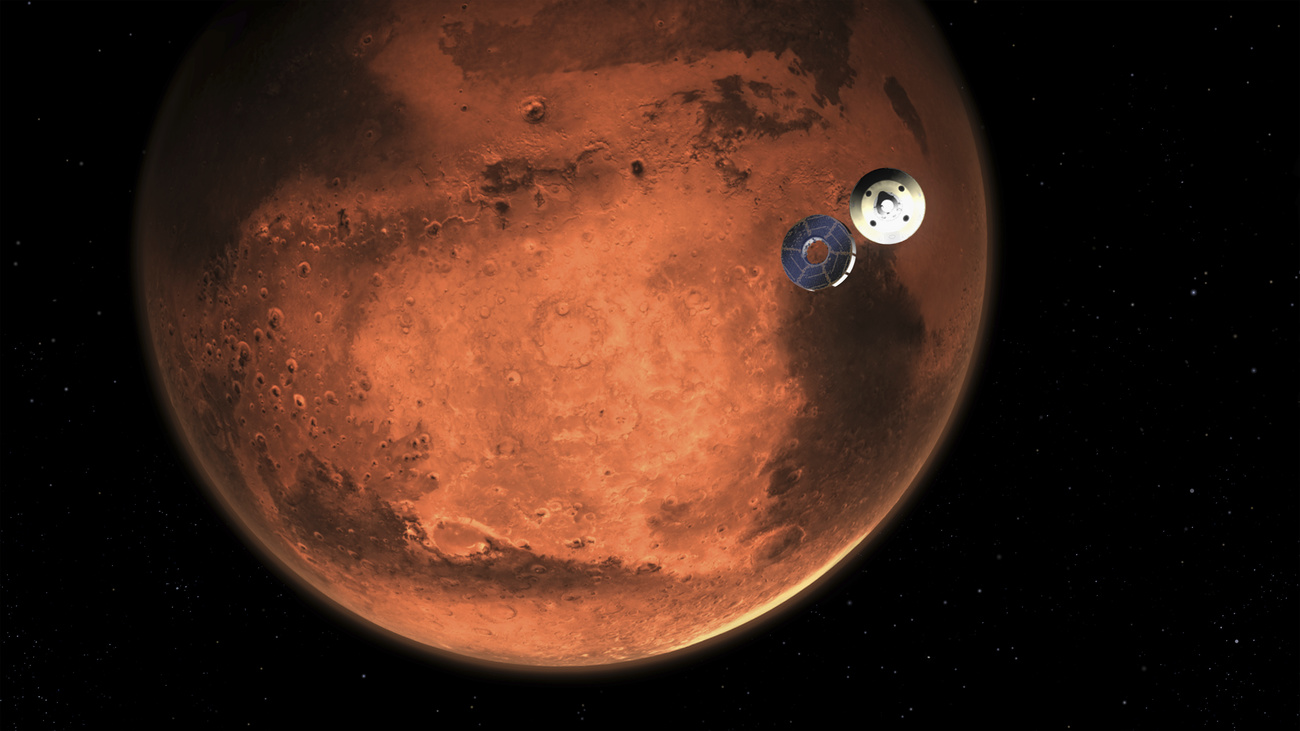
Seismic activity suggests that Mars is ‘alive’

Mars is not the geologically dead planet that has been previously assumed, according to studies of seismic activity on the Red Planet.
Researchers at Switzerland’s federal technology institute ETH Zurich have found evidence that vulcanism still plays a role in shaping the surface of Mars, suggesting that there is still life left in the planet.
Previous seismic recordings had pinpointed the cause of ‘Marsquakes’ to be deep in the core of the planet. But NASA probes, part of the Mars InSight missionExternal link, have thrown up new possibilities.

More
Humans on Mars: possible, or pipe dream? A live debate.
Seismic activity has been observed in the Cerberus Fossae region, a fissured area of the planet named after a creature from Greek mythology known as the ‘hell-hound of Hades’, which guards the underworld.
ETH Zurich researchers have analysed more than 1,300 Marsquakes and the dust emanating from the most active region of the planet.
Double meteorite strike
“The darker shade of the dust signifies geological evidence of more recent volcanic activity – perhaps within the past 50,000 years – relatively young, in geological terms,” said ETH Zurich’s Simon Stähler, the lead author of the paper, which has been published in the journal Nature.
Around 3.6 billion years ago Mars spewed enough volcanic debris to form the largest volcanic system in our solar system, including Olympus Mons, a volcano nearly three times the elevation of Mount Everest.
It was assumed that this activity had long been consigned to history. But the latest research suggests that magma is still pulling the Mars crust apart and could be moving eastward to the next location of eruption.
The ETH Zurich research has been aided by two meteorite strikes that sent seismic waves rippling through the planet’s crust. This has presented scientists with a rich source of data to determine the composition of layers to around 30 kilometres beneath the surface of Mars.
InSight (Interior Exploration using Seismic Investigations, Geodesy and Heat Transport) is an unmanned NASA Mars mission that has been running since 2018.

More
‘Marsquakes’ shed new light on anatomy of the Red Planet

In compliance with the JTI standards
More: SWI swissinfo.ch certified by the Journalism Trust Initiative































You can find an overview of ongoing debates with our journalists here . Please join us!
If you want to start a conversation about a topic raised in this article or want to report factual errors, email us at english@swissinfo.ch.